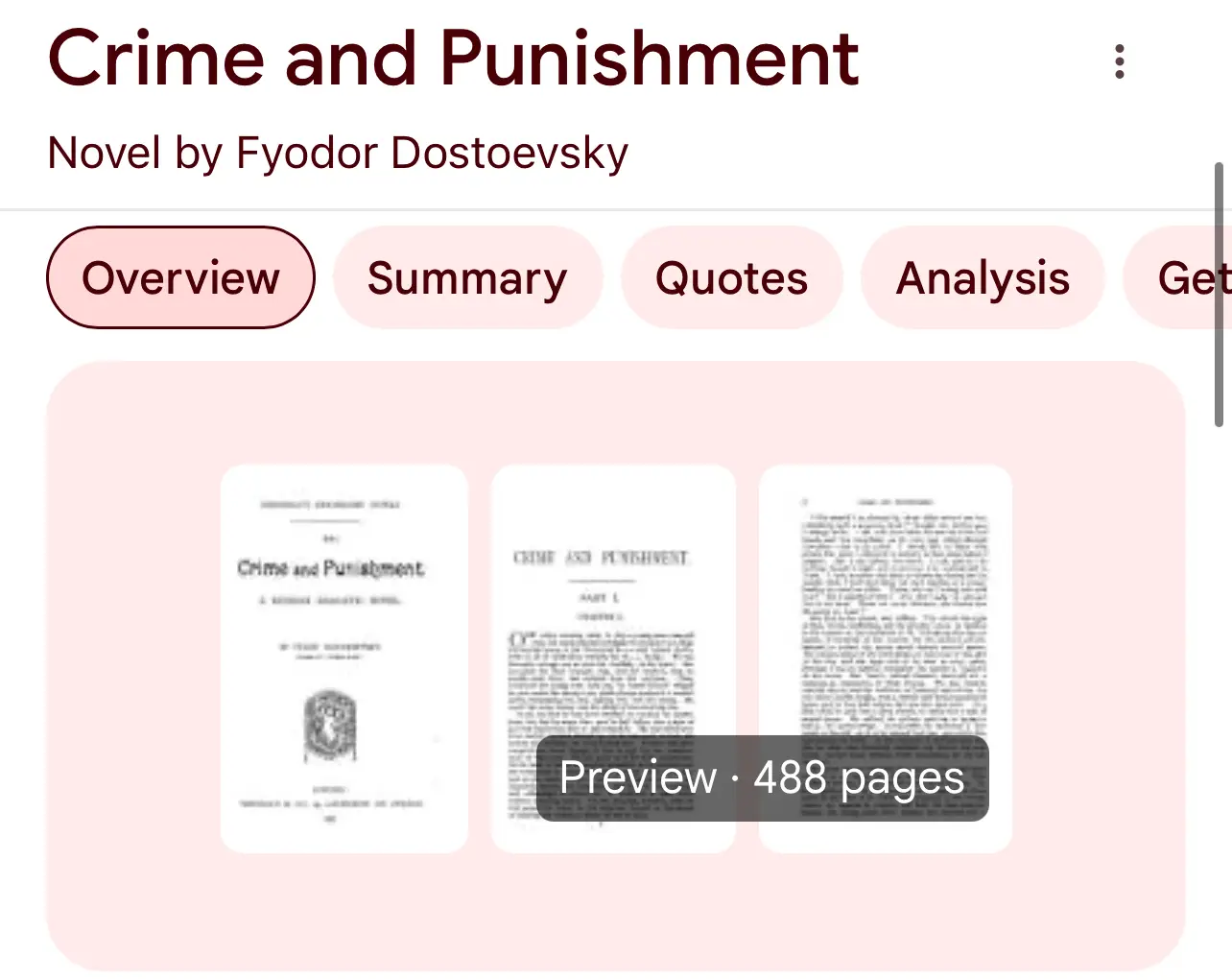Fyodor Dostoevsky’s Crime and Punishment is a timeless classic that explores the profound depths of human nature, morality, and redemption. This psychological masterpiece, first published in 1866, remains relevant today as it examines themes of guilt, suffering, and the quest for meaning.
Overview
Set in 19th-century St. Petersburg, the novel follows Rodion Raskolnikov, a destitute former student who commits a brutal murder under the guise of a philosophical justification. Raskolnikov believes that extraordinary individuals, like Napoleon, have the right to commit crimes if it serves a greater purpose. However, as he struggles with the psychological toll of his actions, the story unfolds into a powerful exploration of conscience, morality, and human connection.
Characters
- Rodion Raskolnikov: The protagonist, torn between his nihilistic ideology and his innate moral compass.
- Sonia Marmeladov: A beacon of compassion and faith, Sonia represents hope and redemption for Raskolnikov.
- Porfiry Petrovich: The astute investigator whose psychological games challenge Raskolnikov’s resolve.
- Dunya Raskolnikova: Raskolnikov’s sister, embodying strength and resilience amidst personal trials.
Key Themes
- Crime and Conscience
Dostoevsky delves into the psychological repercussions of guilt. Raskolnikov’s inner turmoil and self-imposed punishment reflect a universal truth: our conscience can be harsher than any external judgment. - Redemption Through Suffering
The novel highlights the transformative power of suffering. Sonia’s unwavering faith and Raskolnikov’s eventual repentance showcase the possibility of spiritual rebirth even in the darkest times. - Moral Ambiguity
By challenging the idea of moral absolutes, Crime and Punishment forces readers to confront uncomfortable questions: Is there ever a justification for crime? Can ends truly justify means?
Writing Style
Dostoevsky’s writing is both intense and evocative, blending psychological depth with vivid imagery. His narrative seamlessly shifts between gripping drama and introspective monologues, drawing readers into the labyrinth of Raskolnikov’s mind.
Modern Relevance
Despite being set in a different era, Crime and Punishment resonates with modern audiences. Its exploration of existential despair, social inequality, and the human search for meaning makes it a profound and thought-provoking read.
Conclusion
Crime and Punishment is more than a story about a crime; it’s a profound meditation on the complexities of the human soul. Dostoevsky’s masterful portrayal of guilt, redemption, and morality ensures that this novel remains a cornerstone of literary history. Whether you’re a first-time reader or revisiting its pages, this book offers an unforgettable journey into the depths of human consciousness.









